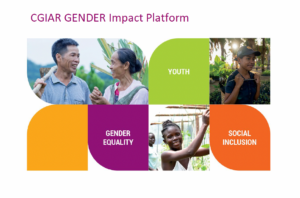A Conceptual Model and Case Studies from South Asia
The three case studies from Landesa’s Women-Led Collective Advocacy for Climate Action Project described in this report suggest that actively supporting women’s meaningful participation can be important in driving forward results. In particular, capacity building and advocacy are both interventions that can enable and facilitate the meaningful participation of women in governance, decision-making, and leadership. In turn, women’s participation and leadership can drive effective climate action and help sustain gender-inclusive peace and human security. There is also a self-reinforcing element at play, as women’s participation can lead to the promotion and adoption of further laws and policies to support Women’s Land Rights (WLR).
The case studies highlight that effective programmatic work can foundationally support WLR and women’s political and civil participation as a means to enhance climate action and sustain gender-inclusive peace and human security. The authors hope that this report, including the conceptual model and case studies:
- Support further progress in the countries of focus—and may deepen understanding and provide inspiration to other practitioners for developing similar lines of intervention that seek to jointly achieve WLR, climate action, and gender-inclusive peace and human security.
- Support actors whose work focuses on one of the three sections of the model—land rights, climate action, or peace and security—can now also see the useful links of their work to the other portions of the model.
Authors: Jennifer Brown and Corey Creedon
Source: Landesa




